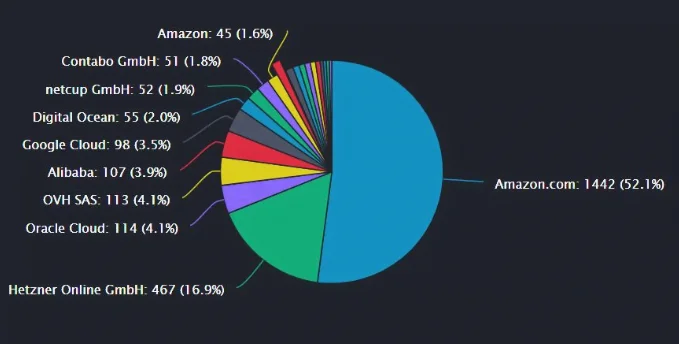According to a post dated August 15, Ethereum nodes are hosted on three large cloud providers including Amazon Web Services (AWS), Hetzner, and OVH with each contributing over 50%, 15%, and 4.1%, respectively.

According to crypto analytics platform Messari, the bulk of the 4,653 active Ethereum nodes are held by centralized web service providers like Amazon Web Services (AWS), which could “subject Ethereum to central points of failure.”
Additionally, according to data from Ethernodes, Oracle (4.1%), Alibaba (3.9%), and Google (3.5%) offer web hosting services on Ethereum.

In a paper published in December 2020, Messari expressed concern that Ethereum may be susceptible due to the expensive nature of node infrastructure, even if the distribution of cloud service providers grows increasingly decentralized among the bottom third of providers:
“High costs to run infrastructure make it more likely that nodes would run infrastructure with cloud computing providers (i.e AWS) – making Ethereum more exposed to central points of failure.”
“High infrastructure operating expenses increase the likelihood that nodes would operate infrastructure with cloud computing providers (such as AWS), increasing Ethereum’s vulnerability to single points of failure.”
Similar problems with node distribution plague Solana (SOL), with Hetzner accounting for 42% of the network’s hosted nodes, followed by OVH (26%) and AWS (3%).
Furthermore, according to Ethernode data, the majority of distributed Ethereum nodes worldwide—nearly 60%—are geographically centered in the United States (46.4%) and Germany (13.4%). Therefore, governmental interference from either of these two nations might have a significant negative effect on Ethereum’s node-level decentralization.
